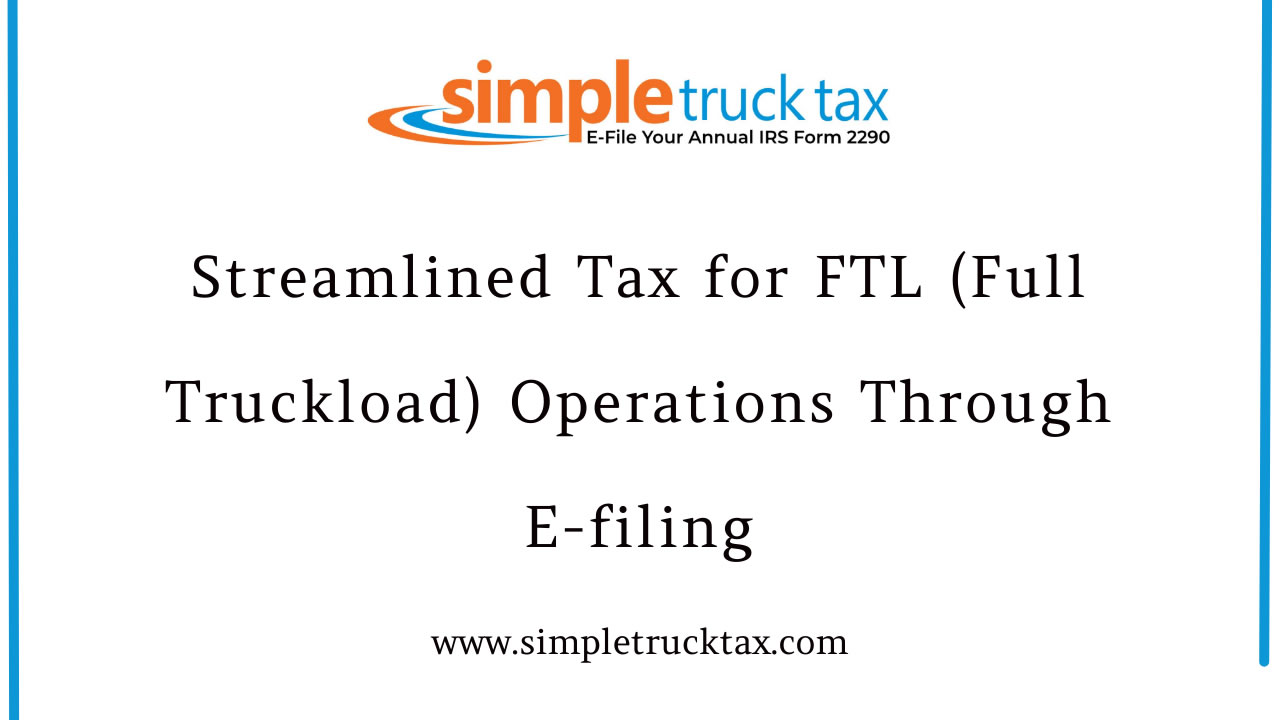
Streamlined Tax for FTL (Full Truckload) Operations Through E-filing
FTL (Full Truckload) carriers have to deal with tight deadlines for delivery and maintaining operational compliance with various tax regulations. They also have to keep a close watch on the margins to ensure that the business remains profitable.
In the past, tax filing was done manually which included lots of laborious paperwork and was incredibly time-consuming for FTL operators who balanced drivers, shipments, and contracts.
With an increasingly competitive stiff environment within the freight sector, trucking businesses are actively looking for ways to reduce the burden of their administrative processes while also making sure they are adherent to IRS regulations.
How E-filing Transforms Tax Compliance
With the advent of technology, e-filing solutions have emerged and transformed the trucking business by automating the processes associated with filing taxes. Numerous trucking companies have already installed e-filing software that allow for e-filing Form 2290 (Heavy Highway Vehicle Use Tax) and quarterly filings.
Now, instead of dealing with tangible paperwork or obsolete government portals, FTL businesses can upload their fleet information, calculate taxes associated, and submit required documents like Schedule 1 electronically within an hour. In addition to time savings, there is a marked reduction in human error as well.
Advantages Other than Saving Time
E-Filing brings more conveniences other than speed, and it’s greatly advantageous towards FTL operations.
Features of many platforms include automated reminders for deadlines, secure data storage, and error checking. This minimizes the opportunities for missed deadlines creating penalties leading to better financial planning for trucking companies.
Furthermore, FTL operators can now focus more on core elements such as moving freight due to e-filing eliminating the administrative burden.
Shifting Strategies for Trucking Companies
For back-office operations that streamline FTL compliance logistics, e-filing is unavoidable. The ever-changing landscape of trucking regulatory requirements coupled with tax laws dictates this shift. The presence of an efficient automated filing system helps avert operational nightmares.
FTL companies able to adapt to e-filing are enabled to reduce costs, increase efficiency and ensure smoother traveling towards sustained long-term success.